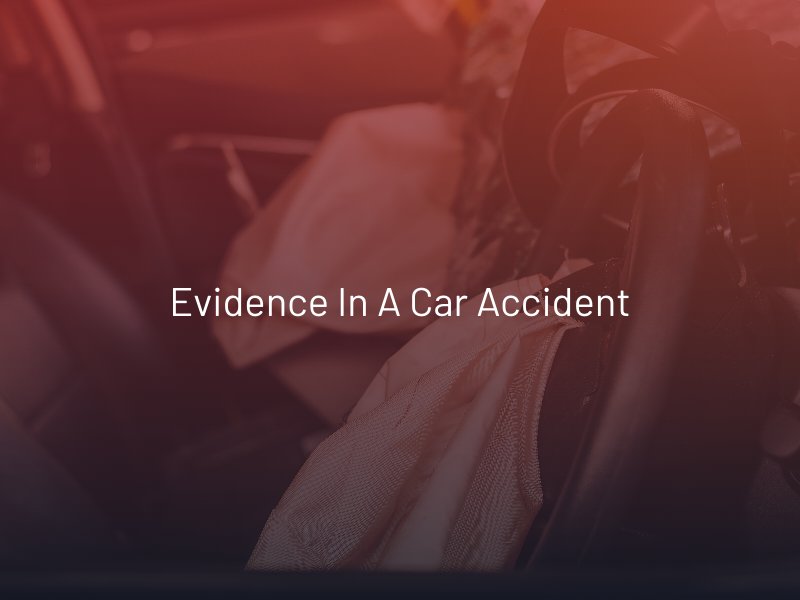Evidence in a Car Accident
After a car accident, evidence will be critical to your ability to recover fair compensation. Here are the types of evidence you need to help ensure you have a solid claim.

Photo and Video Evidence
If you believe your injuries are minor and you do not require emergency medical care, remain at the scene take photos or videos of the following:
- Final resting positions of the vehicles after the collision
- Each vehicle’s damage
- Any property damage to the surrounding area
- Road conditions
- Any skid marks, broken glass, and/or debris in the road
- Weather conditions
- Road signs and/or traffic lights nearby
- Your injuries
- Wide angle view of the entire scene
Photo and video evidence can support your claim by corroborating your version of how the accident occurred and showing who was at fault. For example, the damage to the vehicles may indicate the direction each car was traveling when the collision occurred, the approximate speed of the oncoming vehicle, and give clues regarding who caused it. In addition, documentation on debris and vehicle parts could indicate whether a vehicle or part defect contributed to the accident. Unfortunately, if you are taken to a hospital, you will be unable to document the scene, but you can ask a friend or family member to do it for you or hire a personal injury attorney as soon as possible.
Witness Statements
If anyone witnessed the crash, their statements can be critical to an insurance company’s decision on fault. Witnesses can offer an objective account of how the accident was caused because they have no financial stake in the matter. Therefore, ask for their contact information and if they will make a brief recorded statement on your phone.
The Police Report
If you do not feel calling 911 is necessary, you should still notify the police. An officer will be sent to the scene to take an accident report, which will also weigh heavily in an insurance company’s decision on who is liable. The police report will contain details, such as the date, time, location of the accident, driver statements, possibly a diagram of the crash, and their opinion on how the accident occurred and who was to blame. The report will also note whether anyone involved received a traffic citation or was arrested, which can be significant evidence of fault.
Medical Records
Medical records must link your injuries and any potential harm to the accident. Therefore, seeking medical care immediately after the collision will be vital to your claim. If you delay and wait too long to be treated, the at-fault party’s insurance company may refuse to pay your medical bills and injury-related expenses. Their excuse could be that your injuries were not caused by the collision or are not as severe as you are claiming. The insurer will also check whether you followed your doctor’s advice and recommended treatment.
Speak to an Experienced Attorney
If you were recently injured in a car accident, a Las Vegas car accident lawyer can help you collect the evidence you need to hold the at-fault party accountable. Call (702) 410-6765 or message us online to schedule your free consultation today.